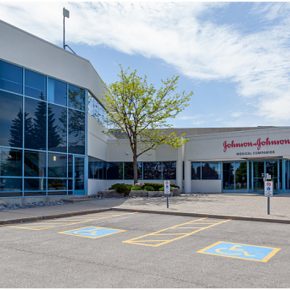As affordable housing options decline, Mississauga is promoting the development of more co-operative housing.
As affordable housing options decline, Mississauga is promoting the development of more co-operative housing.
Co-operative housing, or co-op housing, refers to community residences owned by a non-profit organization and collectively managed by member residents through an elected board of directors.
According to a report presented to the Planning and Development Committee on October 28, co-op housing has historically provided a dependable source of quality, affordable living for low- and moderate-income individuals and families across Canada.
While the city typically does not construct housing, it can aid co-op organizations in seeking funding for redevelopment of existing sites or acquiring land for new co-op developments.
The city is currently looking into a co-op building opportunity as part of the Canada Lands Corporation project at 1 Port St. E., adjacent to a $75 million initiative to develop the Port Credit Harbour. This project includes affordable housing, mixed-use residential and commercial spaces, and a new public marina.
Most non-profit rental housing co-operatives in Canada were established with federal capital and operational support from the 1970s to the early 1990s. The majority of Mississauga’s co-op housing stock was built prior to the mid-1990s.
The report notes, “No new non-profit co-ops have been built in Mississauga in the intervening decades.”
About half of Ontario’s co-ops were developed through federal government programs. Recently, interest in co-operative housing has surged, leading to new funding opportunities and programs at federal, provincial, and municipal levels.
Currently, Mississauga has 22 co-op sites, comprising 10 apartment properties and 12 townhouse complexes, totaling 2,750 co-op units.
Co-op housing is a popular choice due to generally lower rents or monthly charges, although long waitlists and low turnover can restrict options for those unable to buy or rent in the market.
City staff recently met with representatives from the Peel/Halton Co-operative Housing Federation and the Co-operative Housing Federation of Toronto to explore ways to expand the co-op housing stock in Mississauga.
While most residents express satisfaction with co-op living—appreciating the security and community feel—challenges remain, including building maintenance and financial decision-making in areas where board members may lack the necessary expertise.
The city plans to promote new co-op developments through advertising, collaboration with existing co-ops interested in site development, and investigating public or private land sales that could facilitate community land trusts or similar models for new co-op housing.
City staff will report back to the council on the outcomes of negotiations with the Canada Lands Corporation or the Region of Peel regarding potential partnerships on surplus government lands or municipal land acquisitions for co-op housing.
المزيد
























1